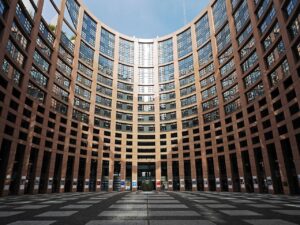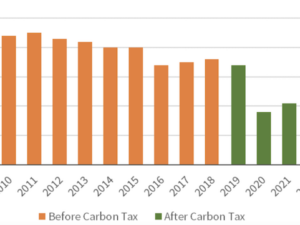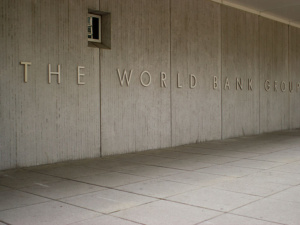
Global food supplies are under threat. Worsening climate impacts in food-producing regions, overconsumption, and badly managed food waste and loss, have combined to reduce global grain stocks, and make food less affordable. Since the COVID pandemic began in early 2020, supply chain disruptions have made food even more scarce, while hundreds of millions of people have fallen into poverty.
The invasion of Ukraine has further disrupted global food supplies, with Ukraine and Russia accounting for 30% of global wheat exports, 20% of corn exports, and more than 50% of some key oil seeds. The World Food Programme is warning current funding and emergency food aid is not sufficient and “Failure to provide this year a few extra billion dollars means you’re going to have famine, destabilization and mass migration.”
The IPCC warns the window for successful climate resilient development is closing fast. Food insecurity, destabilization, and mass migration will be commonplace in a world burdened by pervasive climate disruption. The United Nations has formed a Global Crisis Response Group on Food, Energy, and Finance, because failure to address today’s urgent food, energy, and economic stresses sustainably will leave us facing even greater risks in coming years.
Our global crisis response needs to be climate-smart, resilience-building, and inclusive. To address these urgent crises of the moment, we need to make everyone part of the solution and support real progress toward all of the Sustainable Development Goals, endorsed by 193 nations. Article 6 of the Paris Agreement recognizes sustainable development that leaves no one behind as critical for achieving a climate resilient future.
Article 6, Paragraph 8 (Article 6.8) invites “non-market approaches” to cooperative decarbonization. That means any kind of international cooperation that is not “emissions trading” yet enhances overall global emissions reductions. The easy way to think about this is “non-market” means alignment, investment, and capacity building.
- Aligning climate policies, including carbon taxes and decarbonization goals, through border adjustments and related agreements, strengthens the climate action incentive for business, finance, and trade.
- Placing climate action conditions on development finance, foreign investment, and financial regulations, can shape everyday business activity, and further expand international climate action incentives.
- Nations can also help each other to build capacity for mainstream climate action, by making clean technology, actionable climate science insights, and climate finance more readily available.
Article 6.8 effectively invites nations to become laboratories for creative climate policies that steer a greater and greater share of overall investment toward support for nature and nature-positive waste-free business models.
There is no more time to waste in moving forward with global emissions reductions. In 2022 and 2023, financial institutions across the public, private, and multilateral sectors, must find a way to deploy climate-smart capital that speeds the transition and drives sustainable development, while leaving no one behind. This financial transformation must also foster food systems that are diverse, nature-positive, and secure.
The 450 financial institutions of the Glasgow Financial Alliance for Net Zero have committed to align $130 trillion in financial holdings with science-based net zero targets. That money has to find verifiable emissions reduction strategies in energy and in nature-based solutions.
The biggest opportunity most nations have ever seen to attract new investment lies in activating climate-resilient finance. By aligning public incentives with climate resilient development and healthy, sustainable food systems, through Article 6.8 non-market approaches to cooperative decarbonization, governments can provide the foundation for the best possible economic future for the people they serve.
Getting local with carefully designed public incentives, climate-aligned trade policies, and nature-positive finance can move us from a food economy where scarcity drives prices, to one that values resilience and reduces the risk of scarcity and deprivation, everywhere. Article 6.8 activities can be the toolbox to unlock a boom economy of climate-related investment and sustainable food systems.








